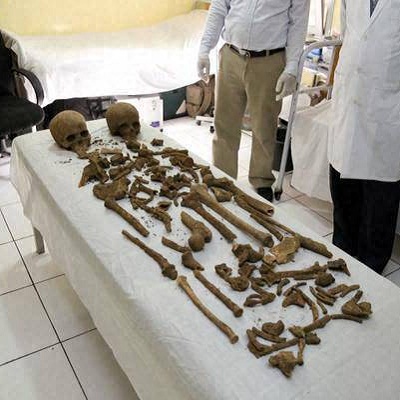Two sets of human remains have been discovered in the Afghan presidential palace, a spokesman said on , rekindling memories of the bloody fate of some of the war-ravaged country’s leaders and their families.
A pair of skulls and other bones were discovered during construction work in the kitchen in one of the palaces of the presidential compound, an oasis of calm cut off from the choking traffic of Kabul by blast walls and a maze of pristine gardens.
Their identities, including gender, as well as the cause of the deaths were not immediately known, but a commission has been set up by President Ashraf Ghani to investigate.
“The president has tasked a commission of forensic experts and representatives of Afghanistan’s Independent Human Rights Commission to examine the bodies and prepare them for proper burial in accordance with Islamic rites,” a statement said.
That quest could prove difficult given the fact that Afghanistan has been in a near-permanent state of war for the past 35 years.
From the struggle against Soviet occupation in the 1980s, through the civil war of the 1990s which was followed by five years of Taliban rule, to the militants’ present day insurgency, Afghanistan has grown accustomed to constant battles.
Several leaders met grisly ends throughout this turbulent period. When the Taliban captured Kabul in 1996, one of their first acts was to string up the castrated corpse of former president Najibullah on a signpost. He was later buried in the eastern province of Paktia.
Burial rites were denied to the country’s first president Mohammad Daud Khan, who was assassinated in a coup d’etat in 1978 along with 18 members of his family in the presidential palace. His body was discovered in a mass grave in 2008 along with 15 other victims of the massacre, and was reburied in 2009.
Daud Khan himself seized power in a 1973 coup that deposed his cousin, King Zahir Shah, to proclaim the first republic.








